SWARM ROBOTICS LAB
Swarm Robotics Lab is one of the HEC funded labs under the National Centre for Robotics and Automation (NCRA). NCRA is a consortia of 11 labs over 13 universities of Pakistan with its headquarters at NUST College of E&ME. NCRA has been inaugurated in NUST College of E&ME by Prof. Ahsan Iqbal (Minister Planning, Development and Reforms) on May23, 2018. Swarm Robotics lab @ UET Taxila is having funding of approximately 79 Million PKR.
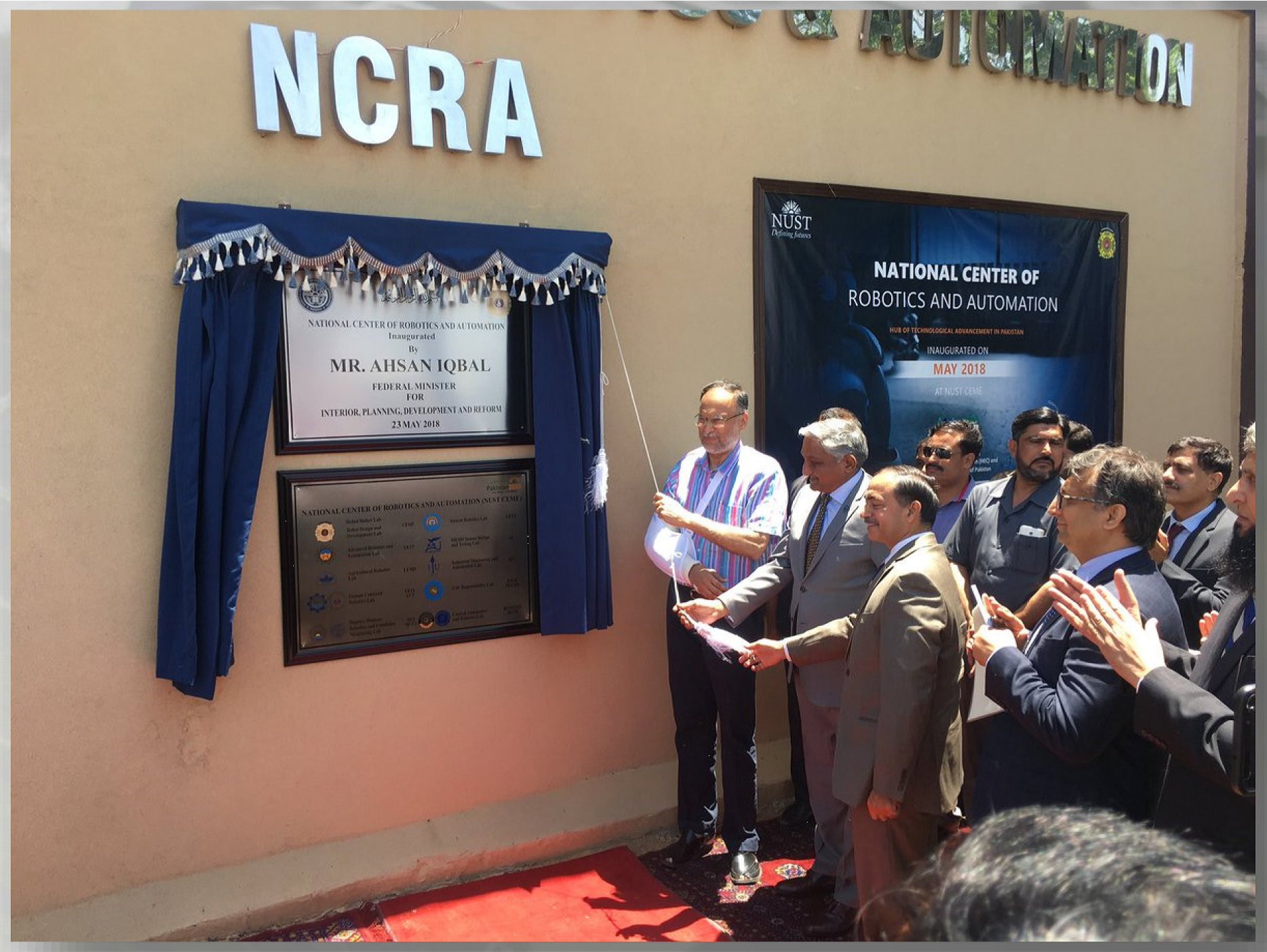
Aim and ScopeTo establish a scaling solution for NCRA by providing an application agnostic swarm intelligence platform. The lab is composed of three sub-labs, i.e., Swarm Intelligence Lab, Computer Vision and AI Lab and Decentralized Communications Lab. The most important aspect of this lab would be to generate a generic scaling solution that would work for any kind of application that is able to benefit from a multi-agent robotic system in an optimal way. Such an undertaking will be achieved using the state-of-the-art swarm intelligence algorithms. Key Application areas are:
Sub-Labs1. Swarm Intelligence Lab:Swarm Intelligence lab will not only be responsible to develop intelligent and application-generic algorithms but also to develop robotic and sensor platforms to deploy during the Proof-of-Concept (PoC) stage. Dr. Mansoor Shaukat will head the Swarm Intelligence Lab. Current research in the field of multi-agent systems and swarm robotics span both the hardware and the simulation development. Developed algorithms have been tested on a fleet of four underwater robots self-developed by Dr. Mansoor Shaukat during his stay at NUS. His work has focused on using minimal distributed communication based strategies for invoking coordination between multiple robots. His work on passive-sensing based strategies has attracted a lot of interest from the research community and has a lot of application in real-world scenarios. He has shown that passive-sensing based strategies can be as efficient as a full explicit communication based multi-agent infrastructure. In Pakistan, we have an elaborate simulation setup where we are developing new algorithms of multi-robot coordination, however, we are limited by the availability of appropriate hardware such as a physical team of multiple robots due to lack of funding - which significantly reduces any chances of publishing in top-tier journals or conferences. 2. Computer Vision LabRobots need to be well-aware and intelligent in scene understanding just like humans, therefore the critical focus of Computer Vision lab, as a sub-lab is "from human vision to robot vision." This lab will be responsible for providing intelligent and optimized solutions for analyzing real-time visual data of the targeted field of view. Dr. Muhammad Haroon Yousaf and Dr. Amanullah Yasin will head this lab. Computer vision is one of the essential allied domain to robotics. Robots need to be intelligent like humans for visualizing and interpreting scenes in real-time. Latest trends in computer vision algorithms are focused on accuracy and computational efficiency. We are working on the following computer vision topics which may be further investigated for deployment on application-oriented robots:
We have published our results in top-tier journals like IEEE Signal Processing Letters, Pattern Recognition Letters, and IET Computer Vision. 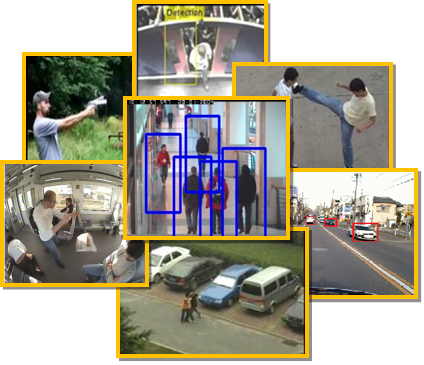
3. Decentralized Communication LabDecentralized Communications domain will be responsible for establishing team connectivity of swarm agents. The fact that seamless communication between swarm agents is a prerequisite to the meaningful cooperation and overall success of robotic operation, underscores the significance of this sub-lab. This sub-lab will therefore assist the main lab in achieving its overall objectives and developing a Proof-of-Concept (PoC) demonstration by providing decentralized team connectivity solutions. Dr. Muhammad Danish Nisar will head the Decentralized Communications Lab. Currently, we are working on building ad hoc decentralized communication networks by using the concept of Software Defined Radios (SDR). The Co-PI of this sub-lab, Dr. M. Danish Nisar, has been leading the physical layer algorithms group within this SDR group. Our current decentralized communication solution provides long communication ranges (tens of km), and provides data rates up to 1 Mbps (depending upon the narrow-band or wide-band version of the waveform). The current waveform has been primarily designed for tactical communications, and as such also includes some vital security and anti-jamming features such as frequency hopping and direct-sequence spread spectrum. 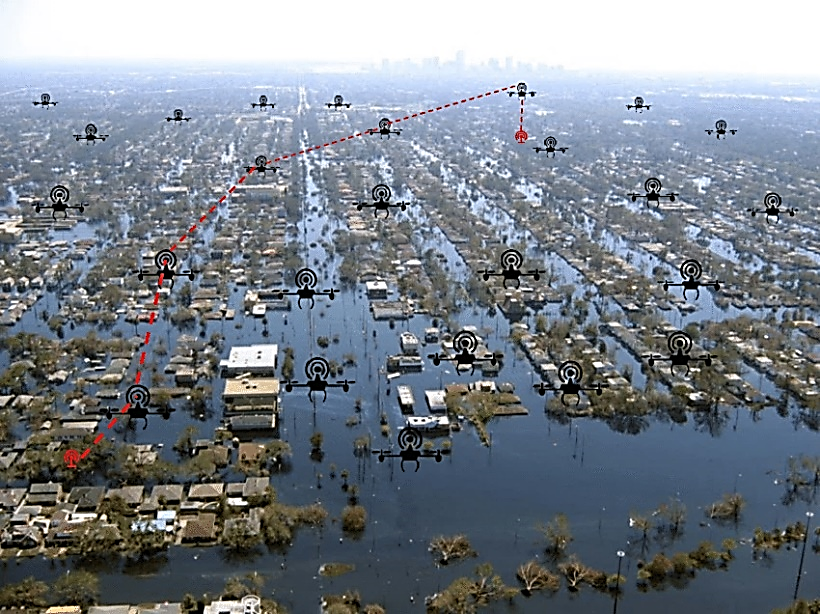
Team
Associate Professor, Computer Engineering Dept. UET Taxila Dr. Muhammad Haroon Yousaf is currently working as Associate Professor and Director postgraduate studies in the Department of Computer Engineering. He holds his Ph.D. in Computer Vision from UET Taxila. He is actively involved in computer vision research particularly in the areas of object detection, object recognition, scene understanding and action/activity recognition. He has an active research collaboration with Prof. Dr. Sergio A. Velastin (Professor of Applied Computer Vision) Queen Mary University of London and University of Carlos III Madrid, Spain. He has supervised 20+ M.Sc. research thesis, and 5 Ph.D. students are working under his supervision right now. He has published a number of papers in national and international conferences and journals. He is also working as Editor, reviewers and program committee member for various journals and conferences respectively. He is the recipient of HEC Best University Teacher Award for the year 2012-2013.
Director Robotics and Assistant Professor, Electrical & Computer Engineering, Center for Advanced Studies in Engineering (CASE) Dr. Mansoor Shaukat will head the Swarm Intelligence domain. He is currently the Director of Robotics at CASE and Vice President of Pakistan’s IEEE Robotics and Automation Society (RAS). He holds a PhD degree in Swarm Intelligence and Multi-Agent Robotic Systems from National University of Singapore (NUS). He has an extensive experience of robot development spanned over a period of 14 years. His mentored teams have won over 57 national titles such as NERC, ABU-Robocon, P@SHA Awards, NASCON and COMPPEC, etc. Internationally, his supervised team won the Asia’s largest and world’s second largest underwater robotics competition, i.e., Singapore AUV Challenge, in 2017. He has multiple international publications in the field of Swarm Intelligence and Multi-Agent Systems including top tier conferences and journals such as ICRA, IEEE Oceans and Adaptive Behavior. He is also a recipient of President’s Gold Medal for his exemplary academic performance during his master’s degree at NUST.
Associate Professor, Electrical & Computer Engineering, Center for Advanced Studies in Engineering (CASE) Dr. Muhammad Danish Nisar will head the Decentralized Communications domain He is currently the head of Wireless Signal Processing (WSP) group at CASE, and Project Technical Lead at CARE within the Software Defined Radio (SDR) group, since 2015. He holds a PhD degree in Electrical and Communication Engineering from Technical University of Munich (TUM), Germany. He has over 8 years of industrial research experience in Germany (including 3 years at Nokia Siemens Networks, 2 years at Nomor Research, 2.5 years at Intel). Earlier, he completed his bachelors in Electrical Engineering from the National University of Science and Technology (NUST), Pakistan in 2004, and his Masters in Communication Engineering from TUM, Germany in 2006, both with honors. Dr. Nisar has proven technical excellence in the field of wireless communications and networking, with over 30 international research publications (including 8 journal publications) with over 200 citations and 3 international patents.
Assistant Professor, Computer Science, Center for Advanced Studies in Engineering (CASE) Dr. Amanullah Yasin will be the Co-PI from CASE. He holds a PhD degree in Data Science and Artificial Intelligence, and Master in Data Science from University of Nantes, France. His current research interests are Big Data analytics, Machine Learning and Bayesian Networks to solve social problems of Pakistan. He has supervised more than 14 M.S. research thesis, and 2 Ph.D. students are working under his supervision right now. He has multiple international publications in the same field. He is also working as reviewer and program committee member for various journals and conferences respectively. Potential Partnerships
State-of-the-art research in multi-agent communications Collaboration in building viable and robust engineering solutions
Two on-going MS Thesis in the area of Multi-Agent Robotics All-Terrain Robots for joint research
Collaborations
|
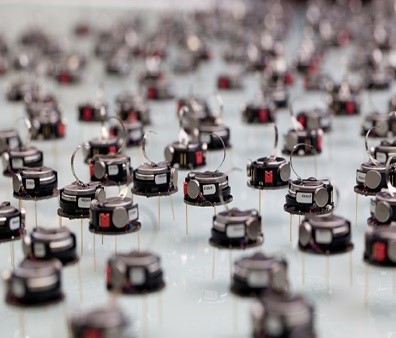
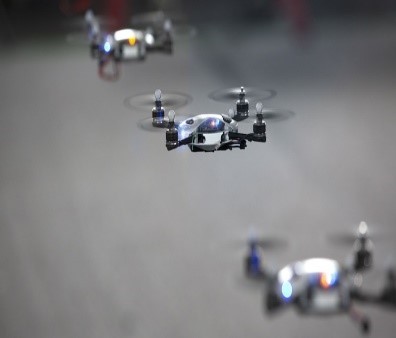

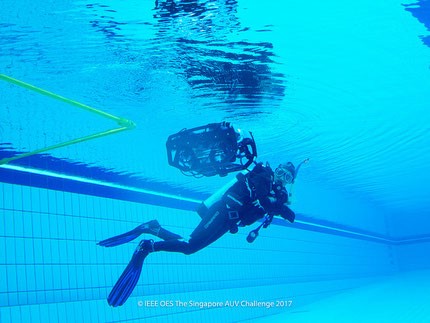
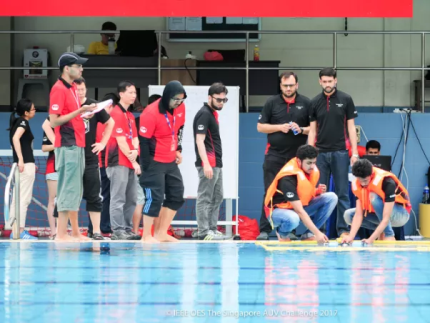
 Dr. Muhammad Haroon Yousaf (Principal Investigator)
Dr. Muhammad Haroon Yousaf (Principal Investigator) Dr. Mansoor Shaukat (Co-PI)
Dr. Mansoor Shaukat (Co-PI) Dr. Danish Nisar (Co-PI)
Dr. Danish Nisar (Co-PI) Dr. Amanullah Yasin (Co-PI)
Dr. Amanullah Yasin (Co-PI)